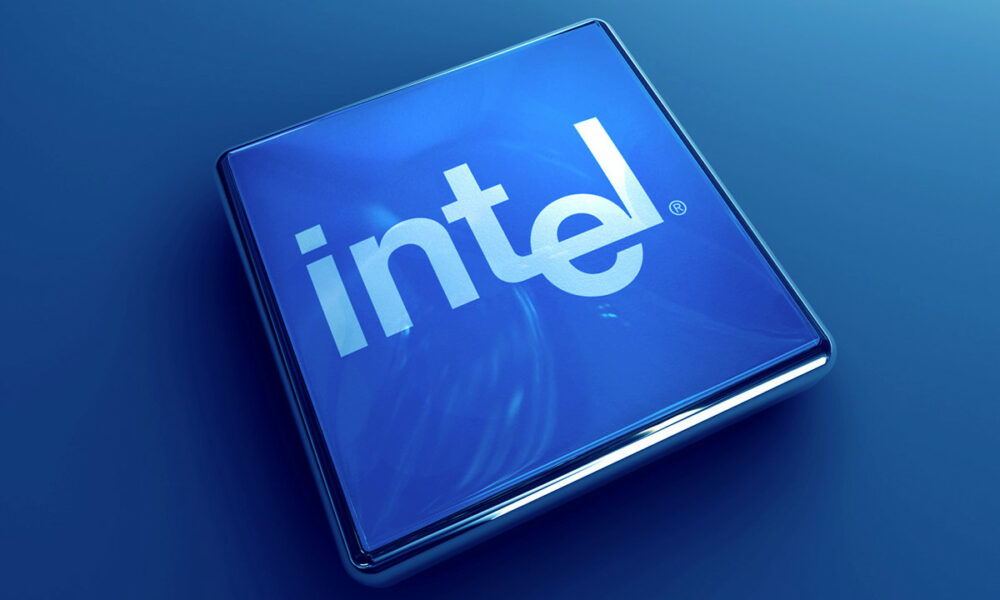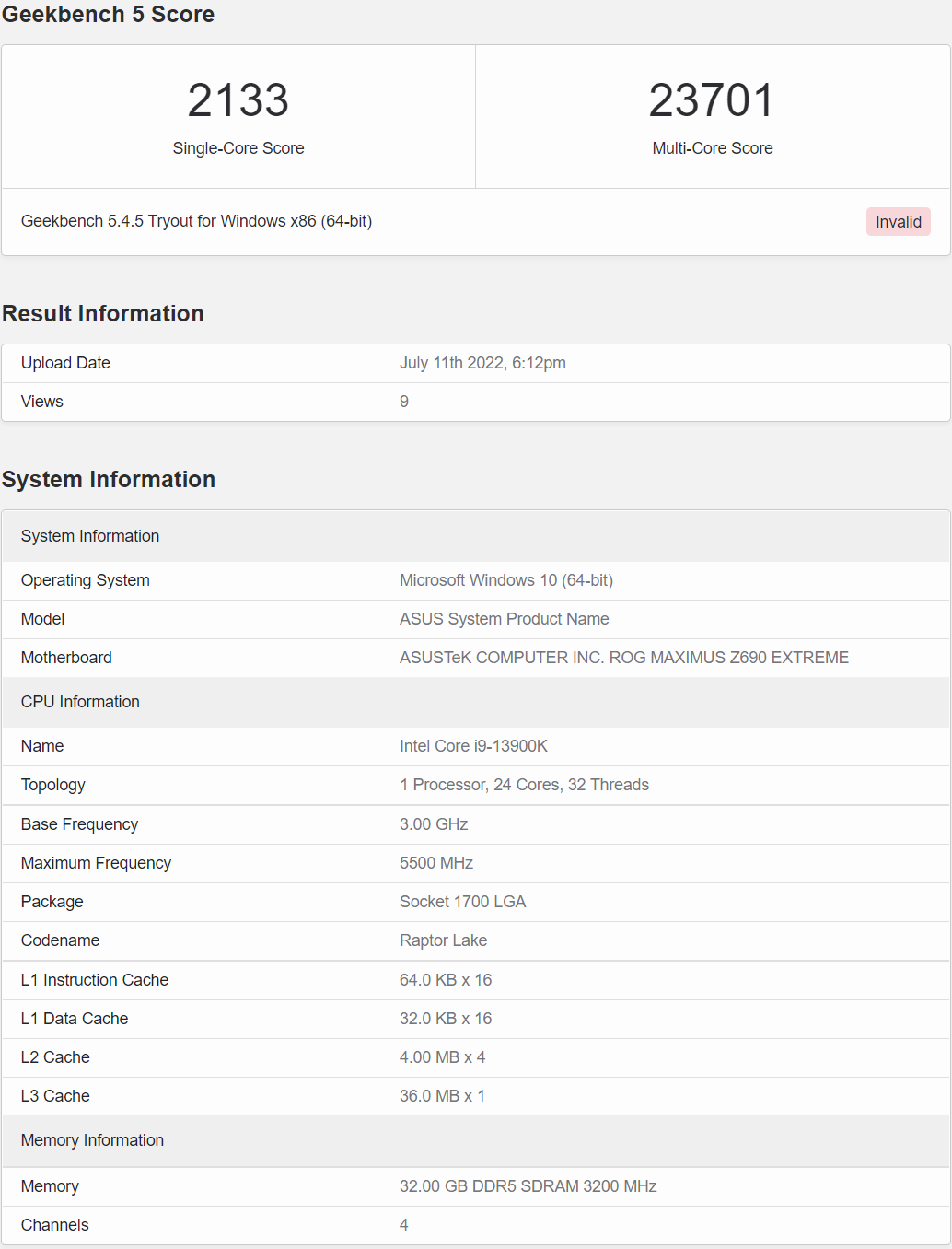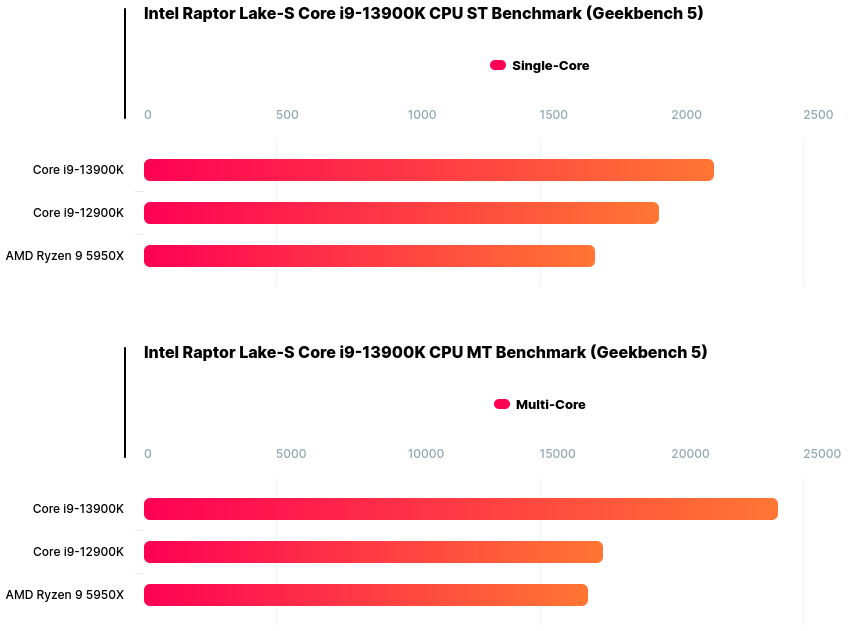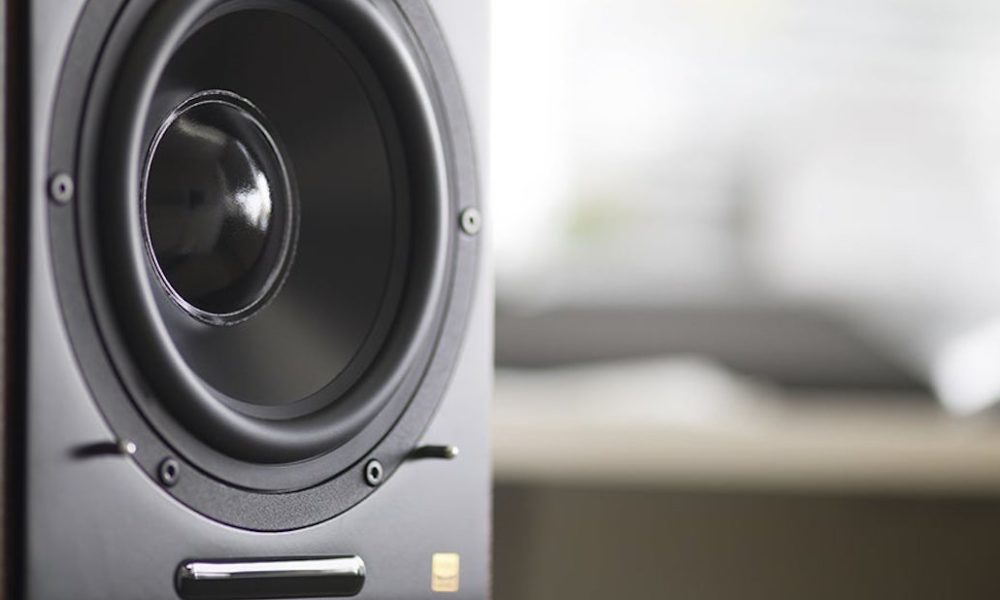
The appearances of Ryzen and the Apple M1 have forced Intel to have to get the batteries, and although it has taken him a while to start to take flight, it seems that he has returned with force, more seeing that the future Core i9-13900Kof generation Raptor Lake and with a maximum clock speed of 5.5GHz, it’s set to be another step in the right direction.
According to a recently leaked performance test conducted with GeekBench, the Intel Core i9-13900K has achieved a score of 2,133 in single core and 23,701 in multicore on an ASUS ROG Maximus Z690 Extreme board and accompanied by 32GB of DDR5-6400 RAM. The predecessor of that CPU, the Intel Core i9-12900K of the Alder Lake generation, marked 1,987 and 17,272 respectively, so the model of the Raptor Lake generation would improve single core performance by 7% and multicore performance by 37%.
The differences between the Intel Core i9-12900K and the Ryzen 9 5950X are even bigger if we consider that the AMD processor scored 1,686 single-core and 16,508 multi-core, so Raptor Lake’s advantage in percentage terms it is 26 and 43 percent respectively. These data are consistent with others that have been previously leaked.

Performance test with GeekBench 5 on the Intel Core i9-13900K processor.
The basis of the improvement of the Intel Core i9-12900K over its predecessor could be right in the addition of 8 additional cores focused on efficiency. The processor has 8 high-performance cores (P-Core) and 16 focused on efficiency (E-Core). If the data that is circulating is confirmed, I would have 68MB cache and officially its clock speeds would be 3.0GHz base and 5.5GHz in turbo mode. Of course, depending on what is mounted with what is accompanied, it could be capable of reaching 5.8GHz.
As always, these data are best taken with tweezers because we are dealing with a product that has not been officially released on the market, so for now it can be said that Raptor Lake looks good at least in the higher ranges, where it aims to be a noticeable improvement over Alder Lake especially in multicore performance.
On the other hand, it will be interesting to see the rivalry that Raptor Lake will have against AMD’s Ryzen 7000, which will be based on Zen 4 and will use the new AM5 socket after the brand reused AM4 for many generations.



